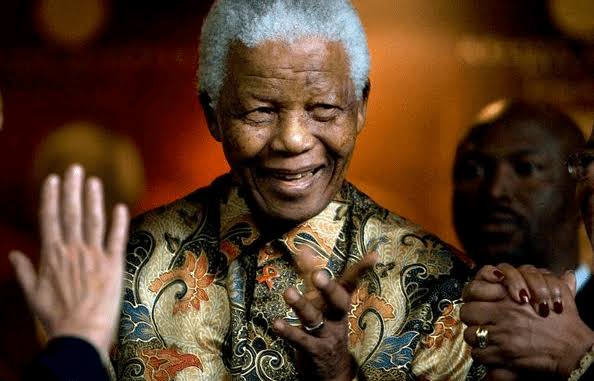A U.S.-based Nigerian historian and professor of Africana Studies, Apollos Nwauwa, has hailed Nelson Mandela, South Africa’s first black President for the outstanding legacy, especially for standing against xenophobia.
Nwauwa, a director of African Studies at Bowling Green State University, Ohio, U.S. told the News Agency of Nigeria (NAN) in New York the late icon would be fondly remembered for uniting the black.
Mandela, the first democratically-elected President of South Africa, and the country’s first Black leader, died in December 2013 at the age 95.
Nwauwa, spoke with NAN in commemoration of the Nelson Mandela International Day, annually marked on July 18, his birthday, to recognise his contribution to the culture of peace and freedom globally.
Mandela – affectionately known as “Madiba”, his Xhosa clan name – fought against the racist apartheid system in his homeland, and for equality and freedom for all people.
“Mandela would be ‘disgusted in his grave’ regarding the ongoing xenophobic uprisings in South Africa where black South Africans are targeting, attacking, and killing black immigrants from other African countries.
“He would have condemned this uprising as shameful and born out of ignorance.
“Quite nauseating is the fact that this xenophobia is often explicitly racialised, targeting mainly low-income black migrants and refugees and, in some cases, South African citizens accused of being “too Black to be South African.”
According to him, black South Africans blame other black immigrants for their high rate of unemployment, resource depletion and other vices.
In 2008, for example, xenophobic violence resulted in the death of over 60 people and contributed to the displacement of at least 100,000.
In one highly publicised incident in April 2022, a 43-year-old Zimbabwean national and father of four was killed in Diepsloot by a group going door-to-door demanding to see visas.
The attackers drove the victim out of a place where he was seeking refuge, beat him and set him on fire.
The violence has continued unabated. It is alleged that the burning of the Yeoville Market in Johannesburg on June 20, was carried out by persons targeting migrant shopkeepers.
The don said with little exposure to foreigners, misinformed and unemployed black South African youths blamed other blacks for their plights especially joblessness.
“Illogical as this argument may be, it is believed by many ill-informed black South Africa youths who are convinced that immigrant backs are taking away jobs and wealth meant for them.
“Mandela would have condemned this xenophobia by reminding them black South Africans about the sacrifice made by other African countries, especially Nigeria, during their anti-Apartheid struggles from the 1960 though 1990.
“Indeed, he would have informed them that he (Mandela) lived in Nigeria for a while during the anti-Apartheid struggle,’’ he said.
Nwauwa said for those who knew him well, Mandela’s values and struggles were not only focused on ending racial injustice in South Africa but also dedicated his life to conflict resolution.
He said Mandela dedicated his life to promoting and protecting human rights; reconciliation; gender equality and the rights of children and other vulnerable groups; the fight against poverty; the promotion of social justice.
According to him, Mandela’s virtues and values can be captured in his famous speech during the 1964 Rivonia Trial for treason against him and his ANC colleagues.
“He was dogged in his ideas and devotion to the cause even while facing a death sentence that was commuted to life imprisonment.
“He affirmed thus: “I have cherished the ideal of a democratic and free society in which all persons live together in harmony and with equal opportunities.
“It is an ideal which I hope to live for and to achieve. But if needs be, it is an ideal for which I am prepared to die.”
